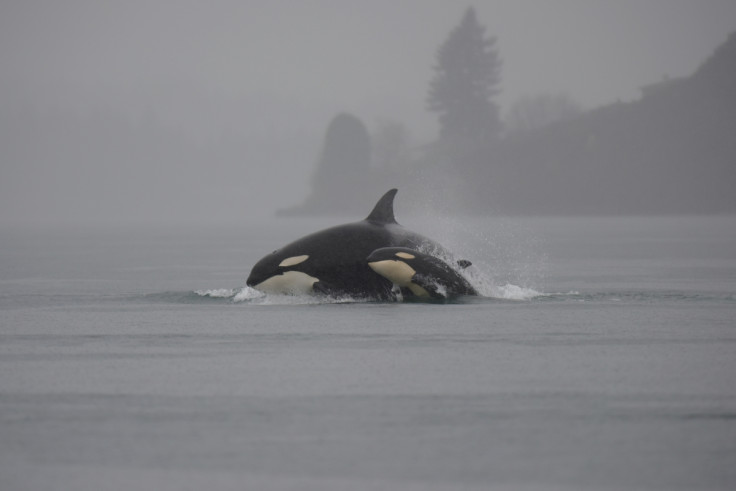NOAA: Stools of endangered orca show they mostly just eat salmon in summer

Salmon makes up 98% of the diet of an endangered species of orca, scientists have discovered by examining their excrement. Researchers from the National Marine Fisheries Service (NOAA) spent five years collecting 175 faecal samples from the southern resident killer whale population in the Salish Sea to work out its diet – a find that will help conservation efforts in the future.
This is the first study to analyse the diet of orca based on its faeces. Before this, scientists had to go by prey remains found on the surface – which might not have been representative of the mammal's total diet. To collect the stools, the team followed the animals until they found one or looked for samples floating on the surface.
Findings, published in PLOS One, showed salmon made up 98% of their diet during the summer. In terms of species, Chinook salmon (stocks of which are also endangered) made up 80%, followed by coho salmon, which made up 15%. The latter species made up a high proportion of the orca diet in late summer and it was rare to find fish other than salmon being eaten.
Study author Michael Ford told IBTimes UK that while killer whale populations are increasing in the north Pacific overall, the species of orca that is the subject of their study is the exception – failing to increase in size or experiencing periods of decline despite now being protected from hunting, capture and harassment.
For this reason, understanding their diet is important: "There are concerns both about the total amount of Chinook salmon and the lack of diversity of the Chinook runs compared to what existed historically," he said. "Other work has shown that the whale's birth and death rates are correlated with Chinook salmon abundance − a bad Chinook year leads to fewer births and more deaths compared to a good Chinook year. Recovering healthy and diverse Chinook salmon stocks is therefore important both for recovery of the salmon but also for recovering the whales."
Ford said that killer whales as a species are very adaptable and are able to feed on a wide variety of prey using different hunting methods, but that this does not necessarily mean this population is safe. "I'm not too worried about the species in a global sense. Individual populations, however, seemed to be quite specialised, and I don't think we can count on the southern resident population changing its prey preferences in a large way, although it probably is adapting in smaller ways to changing patterns of salmon abundance.
"If they were to decline further or go extinct, it would certainly be a loss to the California current ecosystem, even if other populations remained elsewhere in the North Pacific."
© Copyright IBTimes 2025. All rights reserved.






















